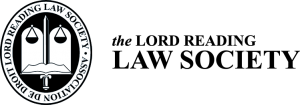NEWSLETTER – October 2020
Editors – Allen Mendelsohn & Larry Markowitz
President’s Message
Andrew Kliger, President
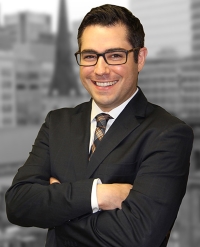 Dear Colleagues, Honourable Judges, and Friends of the Society,
Dear Colleagues, Honourable Judges, and Friends of the Society,
This is certainly not the type of President’s Message that I envisioned sending out when I accepted the post as President of Lord Reading. Since our last newsletter in February 2020, the world has certainly been turned upside down in the wake of the Covid-19 pandemic. Live events, which are the cornerstone of our Society, will not happen for the foreseeable future. But we must, and we shall, go on!
I am incredibly honoured to be the President of the Lord Reading Law Society this year, despite the fact it is conceivable that I will not have the opportunity to greet any of you in person. I would like to give an enormous thank-yous to our Immediate Past President, Gregory Azancot, for his tremendous leadership in the wake of very difficult circumstances last season and for the wisdom that he bestowed upon me.
I would also like to thank the entire Executive and Board members who generously volunteer their time to make this organization and our events so outstanding. I am incredibly grateful to all of them who have provided me help and guidance, and for dedicating their time to planning this season’s exciting series of events.
As I stated above, we must go on. My mission this year is to uphold the honour and prestige of the Society by arranging top quality speakers on topics of importance to us, as advocates. Perhaps a silver-lining to the fact that we cannot host live events for now is that logistical issues of physically bringing speakers to Montreal no longer exist and we literally have access to the entire globe at our fingertips, or at least at the click of a Zoom link!
To this end, our season will officially begin on Tuesday, October 20, 2020, with the annual Alan B. Gold Advocacy Lecture. Our guest speaker is Adam Liptak, the Supreme Court reporter for the New York Times. His talk, entitled “The Roberts Court in the Trump Era: A Reporter’s Reflections”, could not be timelier given the recent passing of Justice Ruth Bader Ginsburg and the nomination process for the next Supreme Court justice, which is literally taking place this week. This lecture promises to be a real eye-opener for what can be expected from the US Supreme Court as it turns further to the right. I invite all of you to register for this event by clicking here.
The other speakers that we have confirmed to date are: Senator Murray Sinclair, who will speak at our annual Human Rights lecture in late November or early December. Senator Sinclair has had a distinguished legal career and is well known for serving as both Co-Chair of the Aboriginal Justice Inquiry in Manitoba and as Chief Commissioner of the Truth and Reconciliation Commission. This event, especially given the overdue attention to systemic racism in the public discourse, is sure to be both timely and informative and we are honoured to host the Senator.
On January 14, 202, our annual student lecture will be given by Robert Laurie, international lawyer based in British Columbia, whose legal practice focuses on commercial business and regulatory issues surrounding cannabis and psychedelic plant medicines. His lecture will focus on the current and future of policy decisions facing these substances and why there is a strong movement to seek legalization for certain uses.
Later in the season (date to be confirmed), Professor Frederick Schauer, constitutional law professor at the University of Virginia who focuses on the First Amendment, will give a talk on the current climate of freedom of expression, on campuses, online and in public discourse.
As usual, all of these events will be CLE-accredited by the Barreau du Québec and the Chambre des Notaires.
On another note, the trial involving Lord Reading’s intervention in the Bill 21 court challenge is scheduled to begin on November 2nd, 2020.
You should have already received the notice to renew your annual membership in the Lord Reading Law Society. I would like to encourage all those who have not yet renewed their membership to do so now. I want to remind our members that all of our online Zoom events this year are free to members, who will obtain no fewer than five CLE’s during the season. This is excellent value for the quality of speakers that we will feature this year.
Members will also benefit for being eligible to member-only events, such as CLE breakfast or lunch programs, which again, will likely take place online this season. You can register and pay your membership fees online here, or alternatively, you may download the paper membership form.
In addition, it is important that as a membership-driven advocacy group, we be able to continue to speak for our usual high number of members, regardless of whether our meetings are online or in-person.
I look forward to seeing all of you (virtually) at our opening event on October 20, 2020, and at all of our other events throughout the 2020-21 season.
I wish everyone the best of health and that you remain in good spirits during these challenging times.
Andrew Kliger, President
Lord Reading Law Society
Tom Mulcair: Love in the Time of Corona
Larry Markowitz
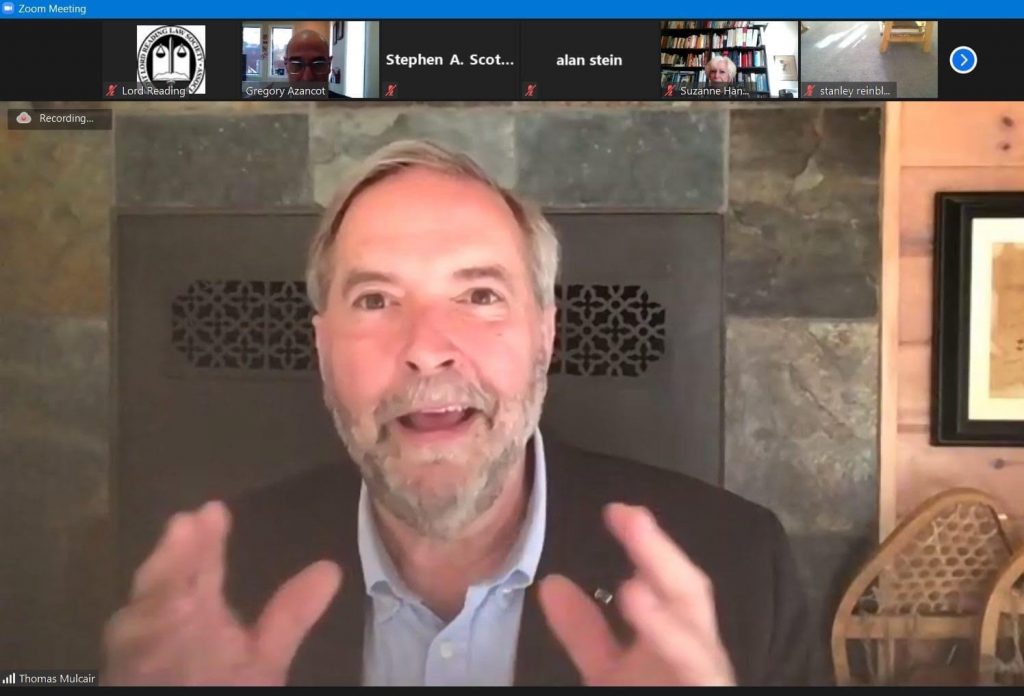
On May 21st, the Lord Reading Law Society held its first-ever virtual event. On this historic occasion, our special guest speaker was the former Leader of Her Majesty’s Loyal Opposition, and current political analyst, the Honourable Thomas Mulcair, PC. His talk was entitled “Love in the Time of Corona: Laws, Directives, Guidelines and Suggestions in a Time of Crisis”.
Despite the format being virtual, our speaker and his interactions with our audience of well over 100 members were very much real.
As we now know, time passes slowly during the time of COVID-19. Mr. Mulcair’s presentation remains timely many months later. He posed the question of why Quebec had the worst record of any province in fighting COVID, a question many are still asking as we fight off a second wave of the pandemic.
Mr. Mulcair held up British Columbia and its provincial health officer, Dr. Bonnie Henry, as the gold standard for public health policy in Canada. Dr. Henry has the power to make binding orders having the force of law. Her declarations are delivered independently of statements by politicians. When she ordered that health professionals not work in more than one seniors’ residence at a time, so as to avoid spreading the virus, that immediately became an enforceable rule.
In Quebec, our politicians have the ultimate say and our chief public health officer, Dr. Horacio Arruda, generally appears alongside the premier or other government ministers. While Quebec suggested that healthcare workers not move between CSHLDs, it was never made the rule.
Mr. Mulcair also contrasted the culture of enforcement in the United States with Quebec’s culture of suggestions. Clear and enforceable rules, rather than mere requests that call upon Quebecers sense of patriotism, would be more effective in the battle against the novel coronavirus, he opined.
He complimented the federal government’s success in quickly pushing money into the economy to avoid a complete shutdown, and what would have been even worse unemployment and insolvency, when COVID-19 initially hit. However, he criticized the federal government’s initial hesitancy to tighten controls on travellers arriving from abroad at our airports.
Following his remarks, Mr. Mulcair took questions from the audience. Impressed with our guest speaker’s performance, one audience member asked when he’d be returning to active politics. Mr. Mulcair stated clearly that this was not to be, exclaiming, “I’ve hung up my skates.”
While that questioner might have been disappointed, the rest of us can rest assured that we will be able to continue to enjoy Tom Mulcair’s insightful political analysis on a daily basis in both the English- and French-language media.
This online discussion was moderated by our then-President, Gregory Azancot, in his final event as head of the Society. Mr. Mulcair was thanked by his McGill Faculty of Law classmate, Society Past President Ronald H. Levy.
In addition to our usual crowd of prominent local jurists, we were thrilled that Lord Alexander Rufus-Isaacs, honorary lifetime member of the Society and great-grandson of Rufus Daniel Isaacs, 1st Marquess of Reading, after whom the Society is named, was able to join us from his home in Beverly Hills.
A set of screenshot photos from the talk can be found on our Facebook page
Lord Reading Runs for a Great Cause
Allen Mendelsohn
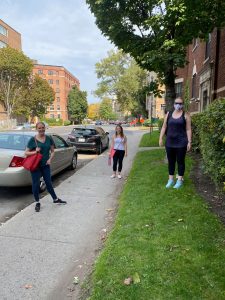 .
.
Lord Reading members on the run!
The Society was delighted to sponsor a team for the recent Juri Course, the annual fundraiser for Montreal’s legal community in support of Justice Pro Bono. While the pandemic meant that the community could not physically gather for the event, individuals participated on their own in 5k and 10k runs, and a 5k walk. Lord Reading was ably represented by numerous members of our Young Bar, and other members who are young at heart! We congratulate all those who participated and Juri Course for the incredible effort keeping the event together during these unprecedented times.
Professor Payam Akhavan: Justice for Genocide
Larry Markowitz
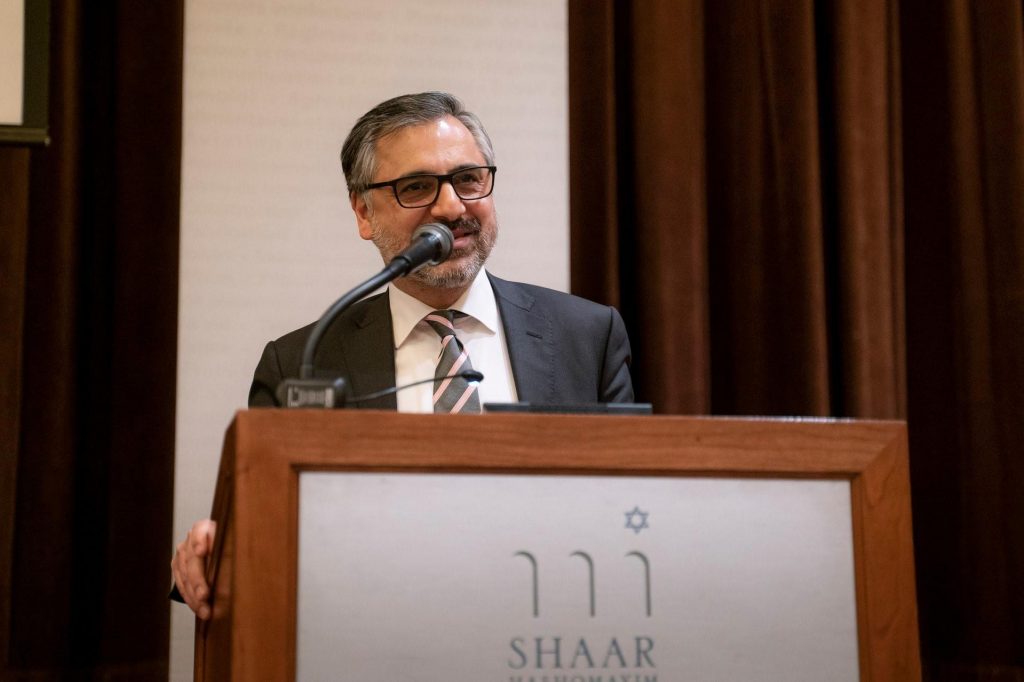
We lawyers like to think we help society—and indeed we usually do—but it is not every day that one of us literally saves thousands of lives as a result of a victory in court.
For our last in-person event prior to the pandemic, our annual Student Dinner on February 6th, the Lord Reading Law Society was delighted to welcome Professor Payam Akhavan of McGill University, world-renowned scholar and attorney in the field of human rights and international law. Professor Akhavan’s talk was entitled “Justice for Genocide”.
In a gripping presentation, Professor Akhavan described his victory of only a couple of weeks earlier at the International Court of Justice, or ICJ, at The Hague, where by unanimous decision, all 17 judges granted what amounted to a restraining order, requiring Myanmar to cease and desist from all acts that United Nations investigators had already determined as constituting genocide against the Rohingya people.
The Lord Reading audience, and especially the many law students in attendance, were deeply moved by our guest speaker’s talk.
* * *
The Rohingya people are a stateless Indo-Aryan ethnic group, who mainly reside in Rakhine State, Myanmar. Denied citizenship under the 1982 Myanmar nationality law, they have been described by the United Nations as one of the most persecuted minorities in the world.
At least 10,000 Rohingya have been killed over the past three years, and thousands subjected to horrific violence. Their villages have been burned, their crops razed, and their livestock slaughtered. Roughly a million have either fled or been driven into neighbouring Bangladesh. The 600,000 Rohingya who remain in their homeland, in Rakhine, continue to suffer violence and persecution.
* * *
Only states are permitted to bring an action before the ICJ. Fortunately, The Gambia, Africa’s smallest country, stepped up as plaintiff. This was the first time in history that a state not directly affected has brought a case at the ICJ on behalf of the international community.
Myanmar is a signatory to the 1948 Convention on the Prevention and Punishment of the Crime of Genocide, which is intended to prevent and punish genocide, and under which the ICJ trial was conducted.
At trial, Myanmar’s leader, now-disgraced 1991 Nobel Peace Prize winner Aung San Suu Kyi, was present. Professor Akhavan recounted to the Lord Reading audience how he spoke truth to power, looking Ms. Suu Kyi in the eye as he pleaded his case. In addition, Professor Akhavan was accompanied by several survivors of the genocide, who were able to see justice being done as they sat in the same courtroom as their lead persecutor.
Myanmar claims that its domestic legal system is dealing with crimes committed in Rakhine, which, it argues, should be understood in the context of civil disturbances arising from a separatist insurgency. The ICJ did not give credence to this argument.
Now that the ICJ has ruled in favour of The Gambia and the genocide victims and survivors it represents, Myanmar must cease and desist from all acts of genocide. The ICJ decision also requires periodic reports from Myanmar on what it is doing to preserve evidence of past acts of genocide and to report every six months on what steps it is taking to comply with the court order.
The next step in the judicial proceedings is the merit stage—conducted in writing. Then, in perhaps three years, oral arguments will be heard and the ICJ will rule on Myanmar’s responsibility. There remains a long road ahead, but in the meantime, the continuation of a genocide has been averted and many lives have been saved.
* * *
The International Court of Justice was established in the wake of the Holocaust, as the United Nations vowed “Never Again”. However, these words have frequently been reduced to a cliché—words that are spoken, but not acted upon.
Is it possible our guest speaker’s victory at the Hague will be a turning point? We can only hope so. The world is watching—in large part thanks to the inspiring efforts of our guest speaker, Professor Payam Akhavan.
A full set of photos from the evening can be found on our Facebook page
At the Student Dinner we also had the occasion to award the Lord Reading Student Awards for the year; please see the next story in the newsletter for the winners!
Lord Reading Student Award Winners
Congratulations to all the student awards winners from last season. Each winner receives a cash scholarship from the Society, in recognition for their excellence in various academic fields.
From McGill University:
Winner : Nathaniel Reilly
For: Highest Standing in First Year in the Faculty of Law, McGill University, for the 2018-2019 Academic Year
From the University of Ottawa:
Winner: Pierre Malhame
Pour la meilleure note dans le cours Droit international public.
De l’Université de Sherbrooke :
Winner: Sandrine Raymond
Pour: Prix pour excellence en anglais juridique à la Faculté de droit de l’Université de Sherbrooke pour l’année académique 2018-2019
De l’UQAM :
Winner: Samuel Roy
Pour: Prix pour la meilleure note en droit pénale
Le Prix Lawrence Glazer, l’Université de Montréal :
Winner: Audrey Labrecque
Pour: Prix pour excellence en Droit constitutionnelle I et II à la Faculté de droit de l’Université de Montréal pour l’année académique 2018-2019
Don’t Forget Your Membership and Your CLE!
The Society wishes to remind you that the current period for Barreau CLE will be coming to an end on March 31, 2021. Do you want to know a great way to get CLE? Become a member of the Society!
Society membership will get you a minimum of 5 free Zoom conferences that will be admissible for CLE. We are also planning members-only CLE events. And if we are able to return to in-person events in the new year, you’ll receive substantial discounts on your dinner-meeting prices. Sounds like a great deal, no?
Click here to become a member today!!!
Congratulations to Our Members for these Barreau Anniversaries
The Society salutes its current and past members who are celebrating the following special Barreau anniversaries:
70th Anniversary
Me Harry Blank, Q.C.
60th Anniversary
Me David R. Franklin, Ad.E.
50th Anniversary
Me Max R. Bernard, Ad.E.
Me Jeffrey K. Boro
Me Howard W. Dermer
Me William F. Finkelberg
Me Michael D. Levinson
Me Elliot Lifson
Me Carl Gelber
Me Peter M. Gold
Me Sheldon G. Price
Me Frank Schlesinger
Me Melvin S. Schiff
Me Boris Stein
Me Leonard Waxman
Me Lawrence P. Yelin
Society Humour
News from the Mispacha
Mazel Tov
- To Society Board member and Young Bar chair Elissa Brock on being named a finalist for the Young Bar of Montreal’s Gala, “Les Leaders de Demain”, in the Corporate Law category
Condolences
- To the family of Senator Yoine Goldstein, Past President of the Society
- To the family of The Honourable Herbert Marx, longtime member of the Society
- To The Honourable Pierrette Sévigny and family on the loss of her husband, distinguished Society member Richard McConomy
- To Society member Jonathan Foldiak on the loss of his mother Marietta
- To good friend of the Society Anthony Housefather on the loss of his father, Me David Housefather, notary




